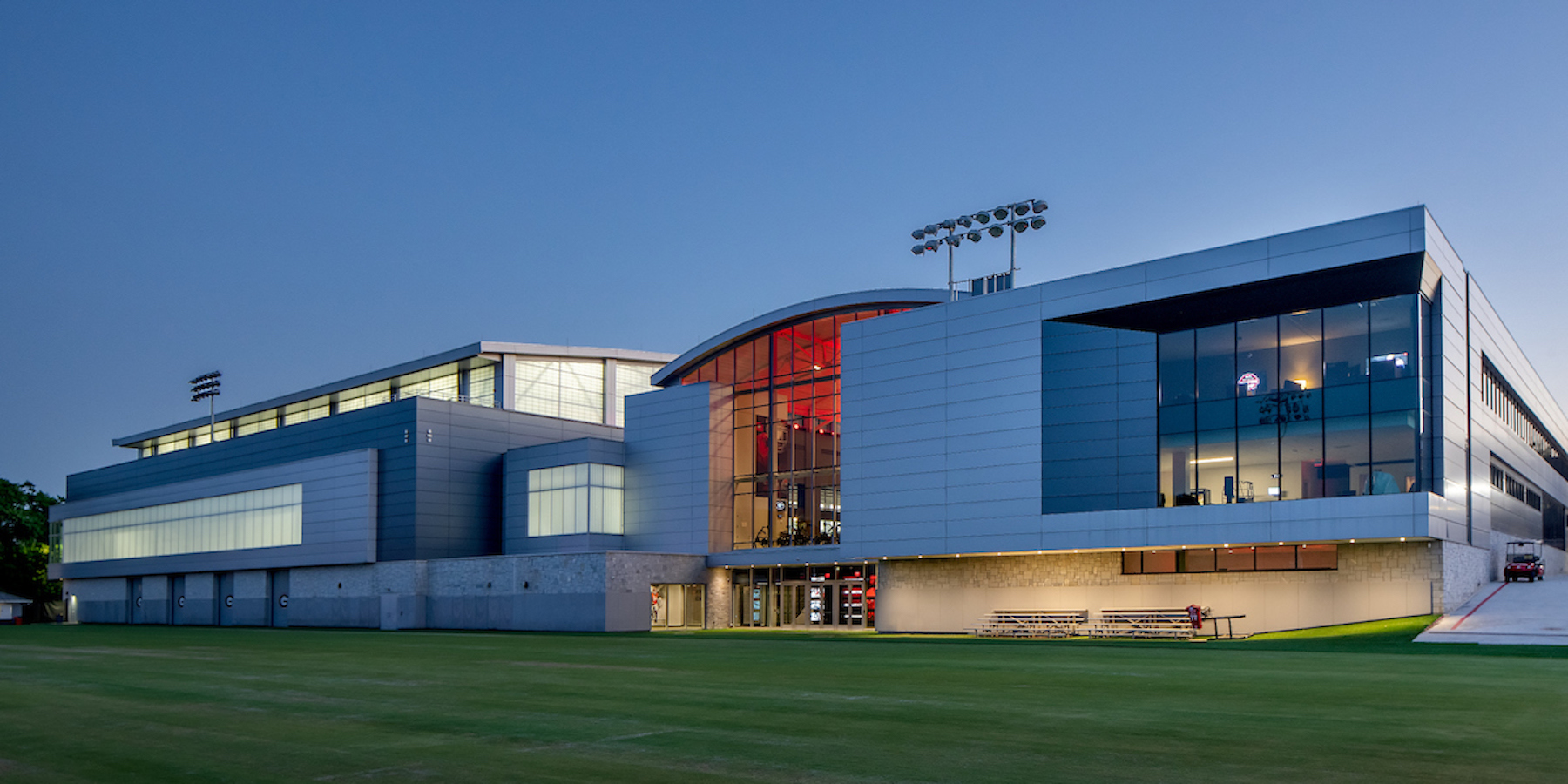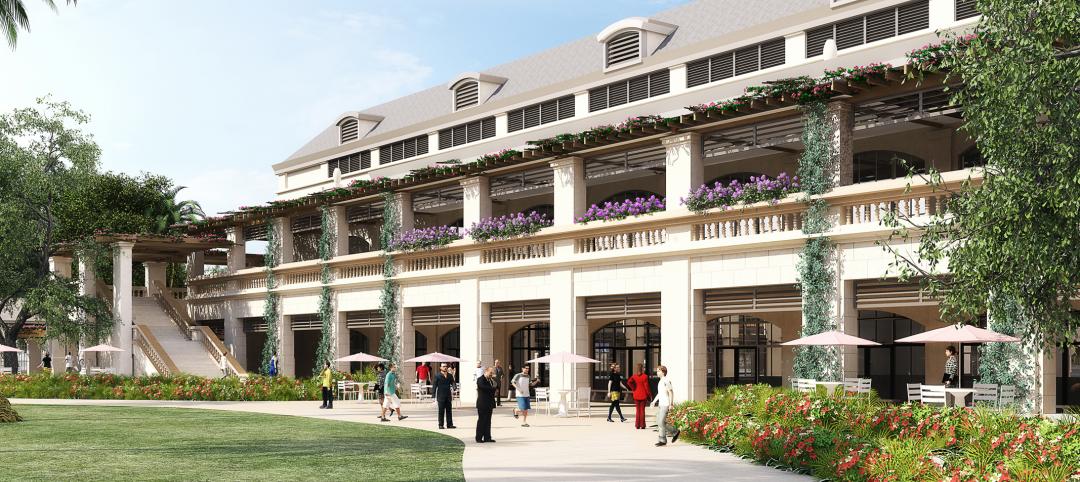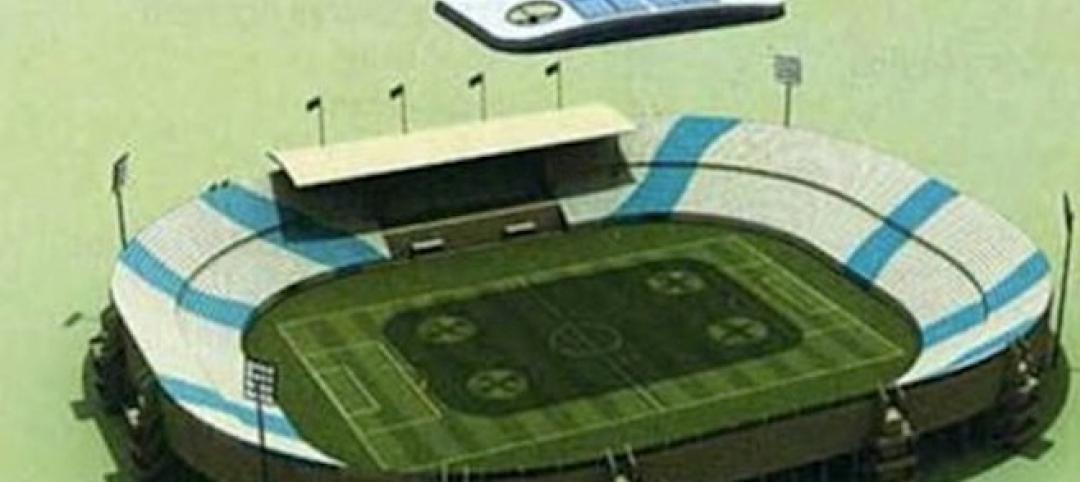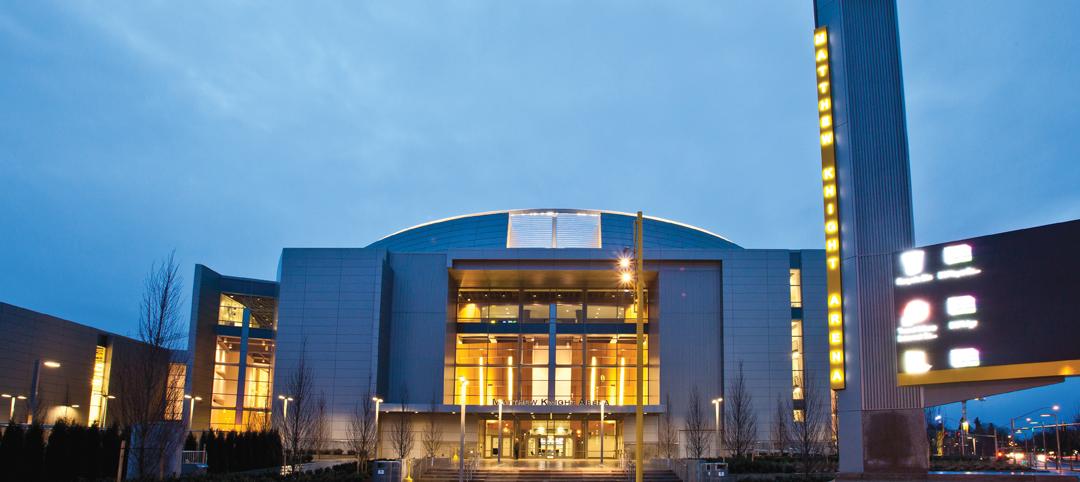A major expansion of the University of Georgia’s football training facility has been completed. The project includes 136,300 sf of new space and 28,700 sf of renovated space in the Butts-Mehre Heritage Hall athletic headquarters building. The result is composed of three floors of high-performance training experiences for student-athletes and coaches. The modern, amenity-filled space, designed by HOK, will support the university’s efforts to continue to recruit and retain top talent.
The field level includes a new locker room with a central private player’s lounge, equipment room, plunge pool, and nutrition bar. A corridor between these spaces connects to an indoor football practice field and two adjacent outdoor fields. The corridor features rich wood tones, sleek metal details, and large-scale video displays highlighting UGA alumni who have played in the National Football League.
The corridor also connects to a uniform display room accessible by facial recognition technology. This room has black mirrored acrylic walls and faux leather vertical panels that slide to reveal UGA uniforms and athletic gear.
A new entry greets athletes and recruits with a prominent black and red trophy display. Upon entry, players are greeted with a central player-centric area that includes a dining space and demonstration kitchen, along with a player’s lounge offering comfortable seating, entertainment, and 360-degree views of key training amenities. These include a weight room, sports medicine facility with hydrotherapy and recovery spaces, an all-team auditorium, team meeting spaces, and views to the indoor field.
The double-height weight room features a dual-sided video board and a plyometric stair connecting to the field level. Floor-to-ceiling windows in the weight room overlook the outdoor training fields, which in combination with clerestory windows, flood the weight room with natural light.
The second-floor houses staff offices, conference rooms, player support offices, an expanded video suite, and a cardio mezzanine overlooking the weight room. A multipurpose lounge overlooking the indoor field provides a flexible space for entertaining athletes, recruits, and their families.
Building Team:
Owner and/or developer: University of Georgia Athletic Association
Design architect: HOK
Architect of record: HOK
MEP engineer: Johnson, Spellman & Associates (Mech/Plumbing) / Mathis Consulting Engineers (Electrical)
Structural engineer: KSi
General contractor/construction manager: DPR Construction (Design Build)
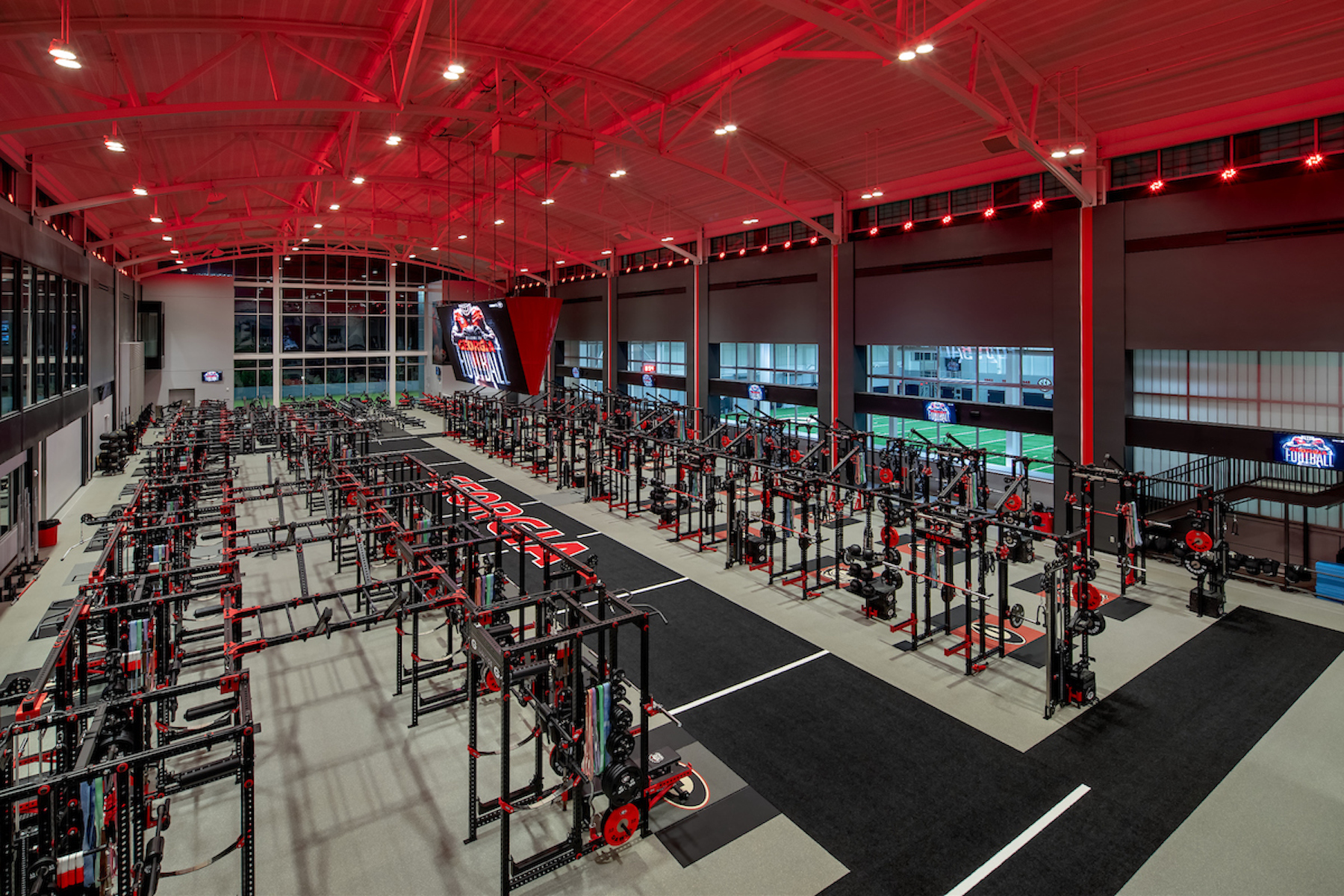
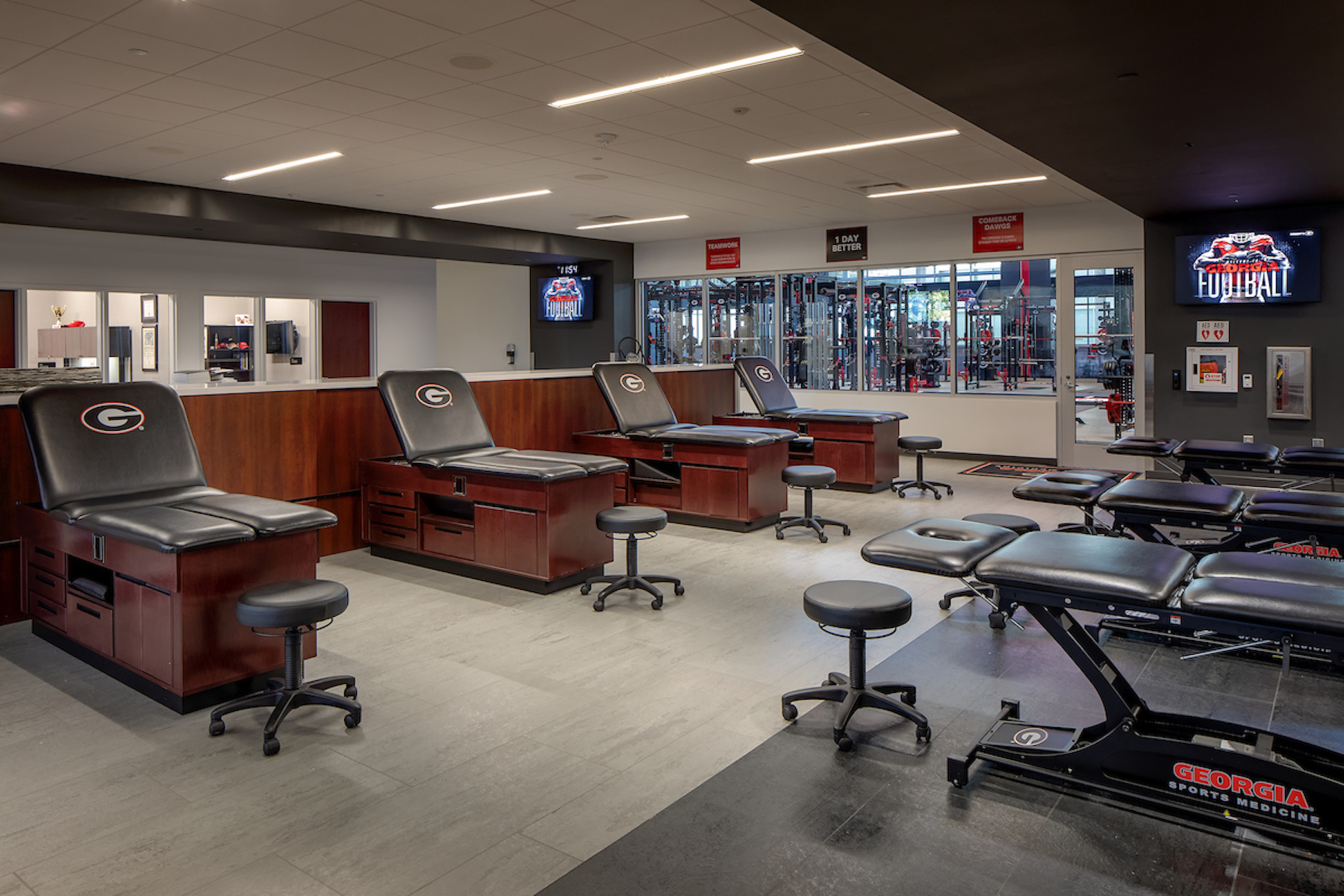
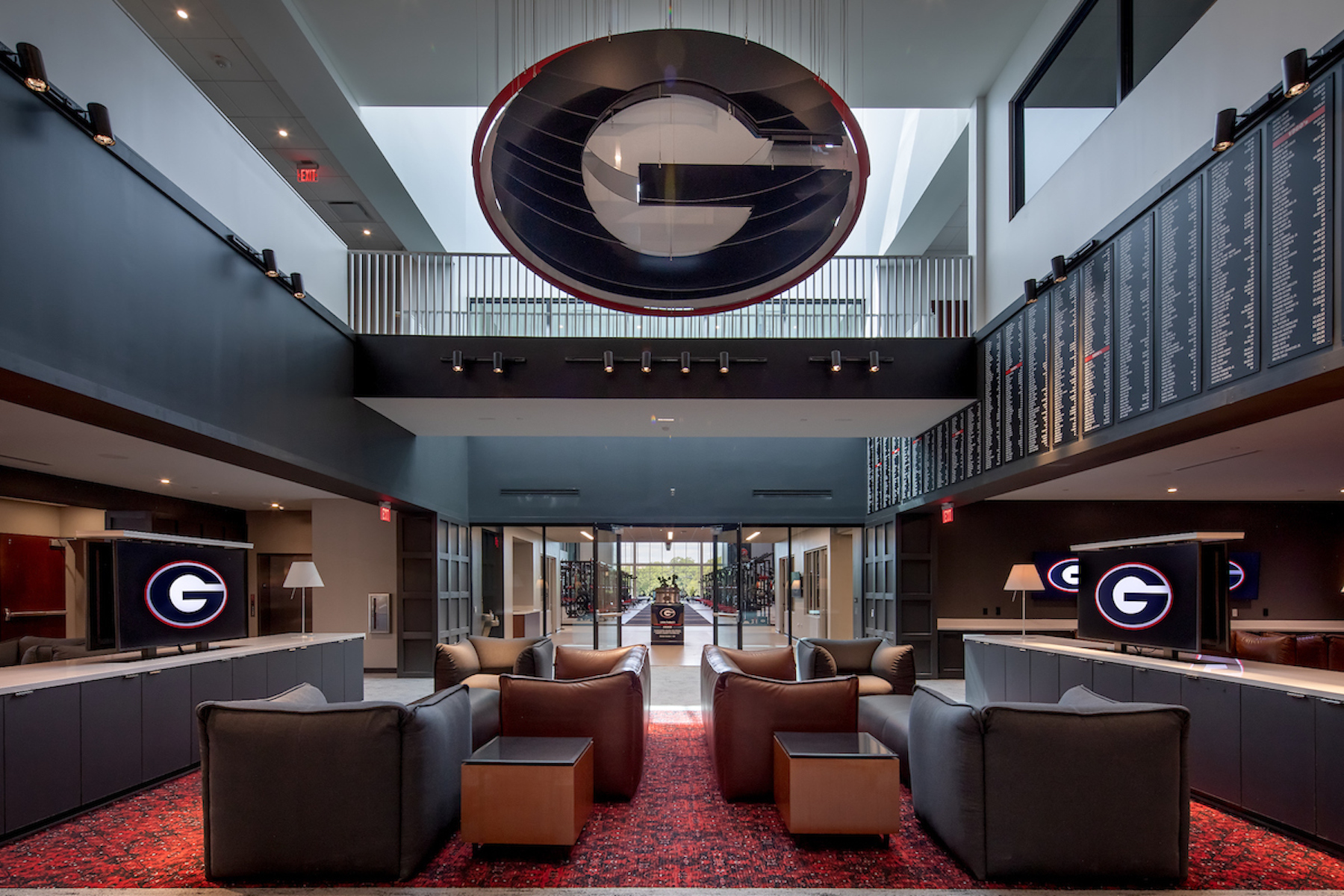
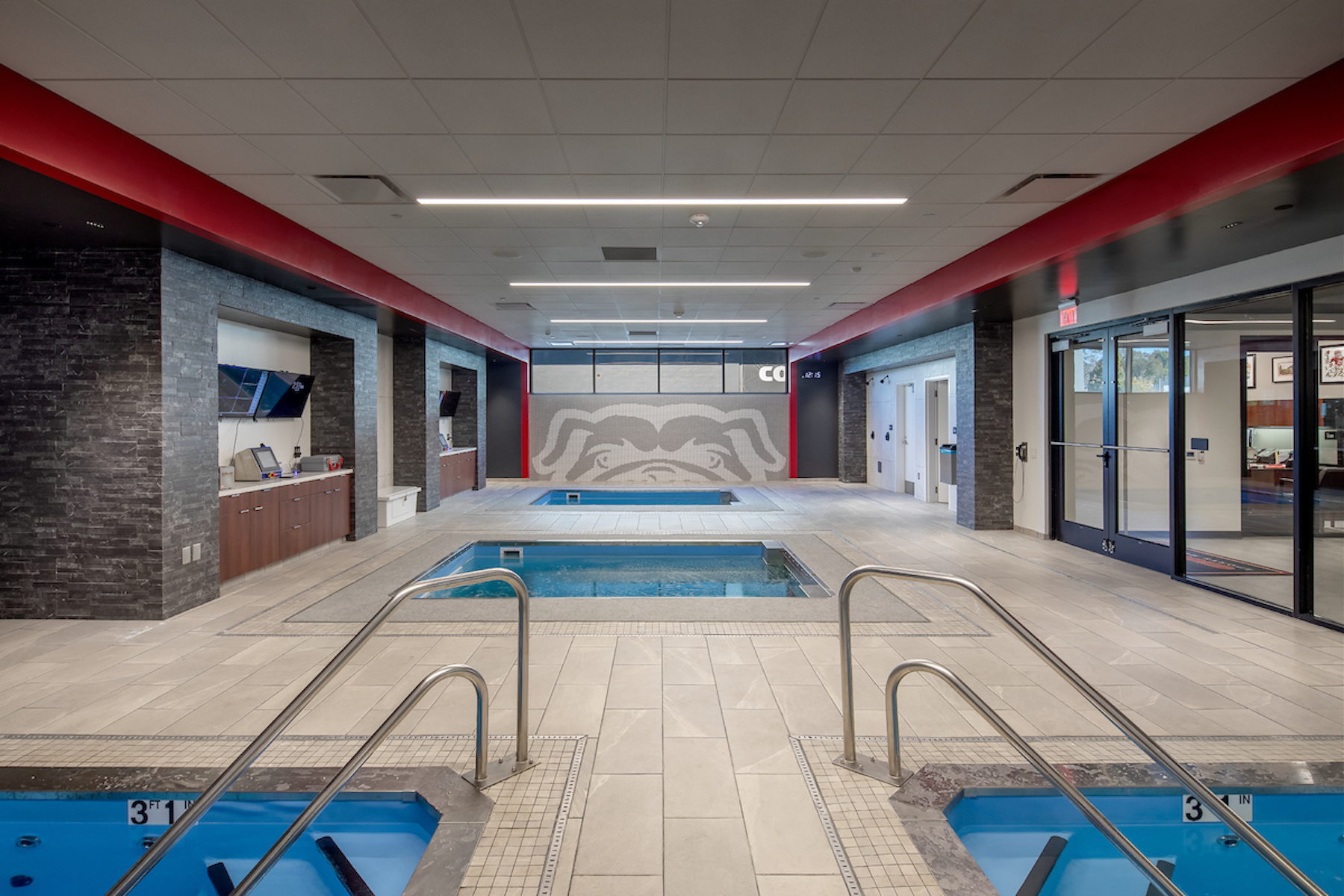
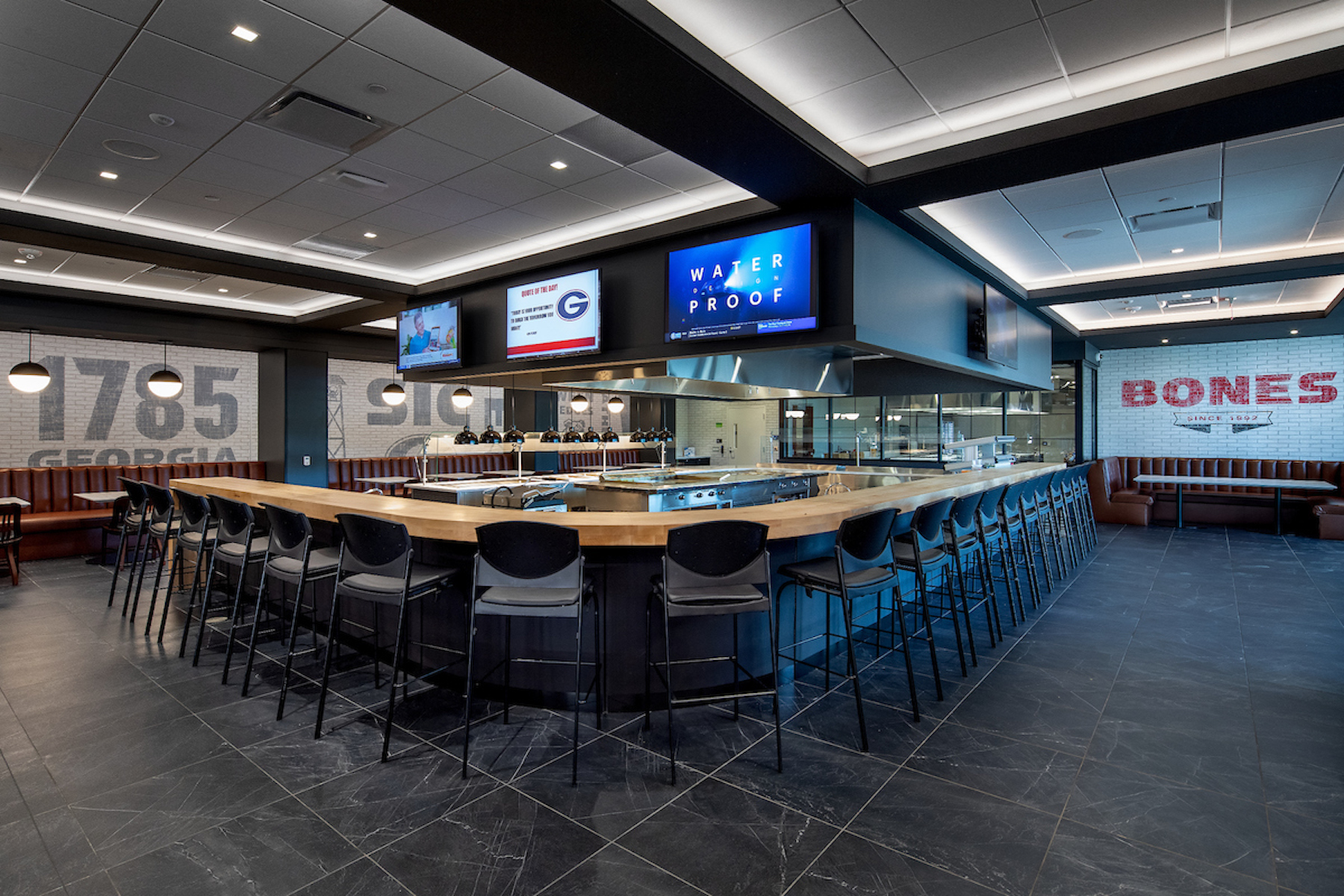
Related Stories
| Sep 30, 2011
Design your own floor program
Program allows users to choose from a variety of flooring and line accent colors to create unique floor designs to complement any athletic facility.
| Sep 16, 2011
Largest solar installation completed at Redskins' football stadium
On game days, solar power can provide up to 20% of FedExField’s power.
| Sep 12, 2011
First phase of plan to revitalize Florida's Hialeah Park announced
This is the first project of a master plan developed to revive the historic racetrack.
| May 25, 2011
Olympic site spurs green building movement in UK
London's environmentally friendly 2012 Olympic venues are fuelling a green building movement in Britain.
| Apr 11, 2011
Wind turbines to generate power for new UNT football stadium
The University of North Texas has received a $2 million grant from the State Energy Conservation Office to install three wind turbines that will feed the electrical grid and provide power to UNT’s new football stadium.
| Apr 5, 2011
U.S. sports industry leads charge in meeting environmental challenges
The U.S. sports industry generates $414 billion annually. The amount of energy being consumed is not often thought of by fans when heading to the stadium or ballpark, but these stadiums, parks, and arenas use massive quantities of energy. Now sports leagues in North America are making a play to curb the waste and score environmental gains.
| Mar 25, 2011
Qatar World Cup may feature carbon-fiber ‘clouds’
Engineers at Qatar University’s Department of Mechanical and Industrial Engineering are busy developing what they believe could act as artificial “clouds,” man-made saucer-type structures suspended over a given soccer stadium, working to shield tens of thousands of spectators from suffocating summer temperatures that regularly top 115 degrees Fahrenheit.
| Mar 11, 2011
University of Oregon scores with new $227 million basketball arena
The University of Oregon’s Matthew Knight Arena opened January 13 with a men’s basketball game against USC where the Ducks beat the Trojans, 68-62. The $227 million arena, which replaces the school’s 84-year-old McArthur Court, has a seating bowl pitched at 36 degrees to replicate the close-to-the-action feel of the smaller arena it replaced, although this new one accommodates 12,364 fans.


